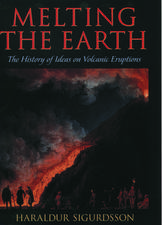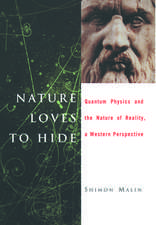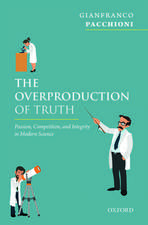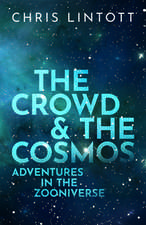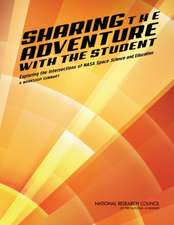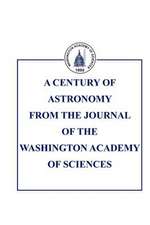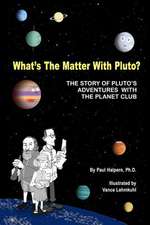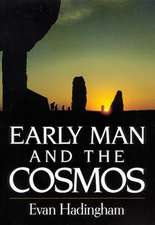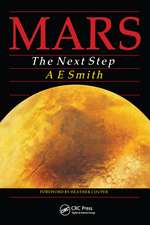The Cradle of Humanity: How the changing landscape of Africa made us so smart
Autor Mark Maslinen Limba Engleză Paperback – 24 ian 2019
| Toate formatele și edițiile | Preț | Express |
|---|---|---|
| Paperback (1) | 62.77 lei 31-37 zile | +21.17 lei 4-10 zile |
| OUP OXFORD – 24 ian 2019 | 62.77 lei 31-37 zile | +21.17 lei 4-10 zile |
| Hardback (1) | 120.30 lei 10-16 zile | +40.47 lei 4-10 zile |
| OUP OXFORD – 26 ian 2017 | 120.30 lei 10-16 zile | +40.47 lei 4-10 zile |
Preț: 62.77 lei
Preț vechi: 75.53 lei
-17% Nou
Puncte Express: 94
Preț estimativ în valută:
12.01€ • 12.49$ • 9.92£
12.01€ • 12.49$ • 9.92£
Carte tipărită la comandă
Livrare economică 04-10 aprilie
Livrare express 08-14 martie pentru 31.16 lei
Preluare comenzi: 021 569.72.76
Specificații
ISBN-13: 9780198704539
ISBN-10: 0198704534
Pagini: 272
Ilustrații: 53 black and white figures
Dimensiuni: 139 x 197 x 17 mm
Greutate: 0.2 kg
Editura: OUP OXFORD
Colecția OUP Oxford
Locul publicării:Oxford, United Kingdom
ISBN-10: 0198704534
Pagini: 272
Ilustrații: 53 black and white figures
Dimensiuni: 139 x 197 x 17 mm
Greutate: 0.2 kg
Editura: OUP OXFORD
Colecția OUP Oxford
Locul publicării:Oxford, United Kingdom
Recenzii
This book offers far more than a palaeoanthropological cocktail with a twist ... In synthesising the most recent research in palaeoanthropology and giving the ecology of our ancestors a climatological twist, Maslin has produced a book that is fascinating, humbling and informative.
Impressively in-depth and well-explained mix of encyclopaedic information... There is an amazing amount of information packed into this surprisingly slim book.
Palaeoclimatologist Mark Maslin delves into deep time to trace humanity's rise to geological hegemony. Examining early hominin finds in East Africa, he spotlights three stages (bipedalism in Australophithecus, a jump in brain size in Homo erectus and Homo sapiens' arrival some 195,000 years ago) and the roles of climate change, celestial mechanics and plate tectonics in their emergence. Ultimately, he theorizes that 'climate pulses' in the Rift Valley, in which hyper-arid conditions alternated with the formation of vast lakes, helped to drive the evolution of the big hominin brain.
Anyone who reads The Cradle of Humanity will certainly be enlightened about this awe-inspiring journey.
Understanding the emergence of our species from the unique landscapes of East Africa is one of the great scientific challenges. Mark Maslin takes us on an exhilarating intellectual journey, encompassing geology, astronomy, climate science and evolutionary biology, to argue that the unique landscape and ever-changing climate of the East African Rift Valley were instrumental in catalysing the emergence of a civilisation on our planet. I'm left with a dizzying feeling of our good fortune to be here at all, and a powerful sense of our responsibility, as Maslin notes, to earn our species name: "Wise"."
As we confront rapid, major changes in the earth's climate today, it is imperative we understand how past climate change made us who we are. This fast-paced book vividly tells the story of how and why shifting environments have been driving human evolution ever since our earliest beginnings in Africa, and why those changes matter.
An interesting and novel take on the subject ... a superb and highly recommended book that convincingly argues how the happenstance conditions in East Africa shaped us and our forebears.
A powerful, gripping account of how the dynamic earth shaped human evolution... With impressive ease, Maslin packs a tremendous amount of knowledge into a flowing narrative, making the point that special conditions for a number of species of tropical apes on the African continent eventually turned out to be luck... A tour de force through Earth's history and a timely reminder of just how lucky we are to be here at all.
In this tale of mountains, monsoons, and meteorites, climate and ocean currents, Maslin masterfully puts human evolution into context, and shows how the earth and its environments have shaped us.
Impressively in-depth and well-explained mix of encyclopaedic information... There is an amazing amount of information packed into this surprisingly slim book.
Palaeoclimatologist Mark Maslin delves into deep time to trace humanity's rise to geological hegemony. Examining early hominin finds in East Africa, he spotlights three stages (bipedalism in Australophithecus, a jump in brain size in Homo erectus and Homo sapiens' arrival some 195,000 years ago) and the roles of climate change, celestial mechanics and plate tectonics in their emergence. Ultimately, he theorizes that 'climate pulses' in the Rift Valley, in which hyper-arid conditions alternated with the formation of vast lakes, helped to drive the evolution of the big hominin brain.
Anyone who reads The Cradle of Humanity will certainly be enlightened about this awe-inspiring journey.
Understanding the emergence of our species from the unique landscapes of East Africa is one of the great scientific challenges. Mark Maslin takes us on an exhilarating intellectual journey, encompassing geology, astronomy, climate science and evolutionary biology, to argue that the unique landscape and ever-changing climate of the East African Rift Valley were instrumental in catalysing the emergence of a civilisation on our planet. I'm left with a dizzying feeling of our good fortune to be here at all, and a powerful sense of our responsibility, as Maslin notes, to earn our species name: "Wise"."
As we confront rapid, major changes in the earth's climate today, it is imperative we understand how past climate change made us who we are. This fast-paced book vividly tells the story of how and why shifting environments have been driving human evolution ever since our earliest beginnings in Africa, and why those changes matter.
An interesting and novel take on the subject ... a superb and highly recommended book that convincingly argues how the happenstance conditions in East Africa shaped us and our forebears.
A powerful, gripping account of how the dynamic earth shaped human evolution... With impressive ease, Maslin packs a tremendous amount of knowledge into a flowing narrative, making the point that special conditions for a number of species of tropical apes on the African continent eventually turned out to be luck... A tour de force through Earth's history and a timely reminder of just how lucky we are to be here at all.
In this tale of mountains, monsoons, and meteorites, climate and ocean currents, Maslin masterfully puts human evolution into context, and shows how the earth and its environments have shaped us.
Notă biografică
Mark Maslin is Professor of Palaeoclimatology at University College London. He is a Royal Society Wolfson Research Merit Award holder, a Royal Society Industry Fellow, and a Fellow of the Royal Geographic Society. Maslin has published over 160 papers in journals such as Science and Nature on past and future climate change and its effects on the carbon cycle, human health, biodiversity, and human evolution. He is the author of Climate: A Very Short Introduction (OUP, 2013), and Climate Change: A Very Short Introduction (OUP, 2014), now in its third editon.

